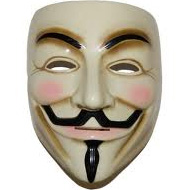Finally, the number one error that new players make is failing to learn basic blackjack strategy. This is a handy guide that’ll tell you when you should hit, stand, double down, and split. There’s no math involved and anyone can learn it, though some memorization is required. Once you’ve committed it to memory, you’ll find that it’s much easier to make the right plays when playing blackjack.

There are a bunch of popular casino games, but none can match blackjack for widespread popularity. It’s easy to learn, no complex equipment is required, and games come thick and fast — everything that a person would want from a game, essentially. However, though blackjack is much more straightforward than, say, poker, that doesn’t mean that gameplay is always a walk in the park. A player can learn how to play in a few minutes, but they could still commit errors that negatively impact their performance.
Being aware of the common mistakes that new players make when playing blackjack is essential since it’s an easy way to level up your performance as soon as possible. Let’s take a look.
Playing Too Safe
New players can often play in fear of going bust, and, as a result, end up standing on hands that are unlikely to lead to victory. For example, many players are inclined to stand when their cards total sixteen. Some players even stand with fifteen or fourteen. You can see why they do this since there’s an increased risk of going bust. However, it’s usually best to hit on anything below seventeen, especially if the dealer’s starting hand is six or lower since it’s best to assume that the dealer’s unseen card is a ten.
Not Utilizing Alternative Plays
Blackjack is a simple game, but it’s not overly simple. There are a few alternative plays you can make during your turn that are important to be aware of. For instance, taking the ‘doubling down’ option that’s offered to you once both of your starting cards have been revealed. If you take it, your stake will be doubled and you’ll be given one additional card before your turn is over. In most cases, it’s not worth the risk, but there are a few scenarios when it is — for example, if your starting cards equal eleven, it can be worthwhile doubling down since there’s a good chance that the single card you’re given will push your hand to 21 (or close to it). Understanding when to split cards is another useful trick new players should know, too.
Splitting The Wrong Cards — Or Not At All
If you’re given two of the same card in your starting hand, you’ll have the option to ‘split’ them to create two starting hands. For example, let’s say you’re given two 8s. You can play them as a normal hand, or split them and play them as two separate hands.
Splitting every starting hand is a mistake. In most cases, you shouldn’t split cards. If you have two 10s, it’s best to leave them together for a total of 20, rather than splitting and running the risk of ending up with two hands with a value of 14 and 15. On the other hand, some players avoid splitting cards altogether, and that’s also a mistake. If you have two aces, for instance, then it’s best to split them into two hands and give yourself double the chance of getting blackjack.
Thinking of Other Players
Regardless of whether you’re playing blackjack online or in the real world, it’s best to ignore your fellow players. Unlike poker, they’ll have no impact on your gameplay. Remember: in blackjack, the game is exclusively against the dealer, not the other players. The only way they can impact your hand is by hitting on a hand where they should stand and taking a card that would have helped you. But they’ll just as often remove a card that would have hurt you, too, so it’s really not worth thinking about!
Not Learning Basic Strategy

 Hot Features
Hot Features













